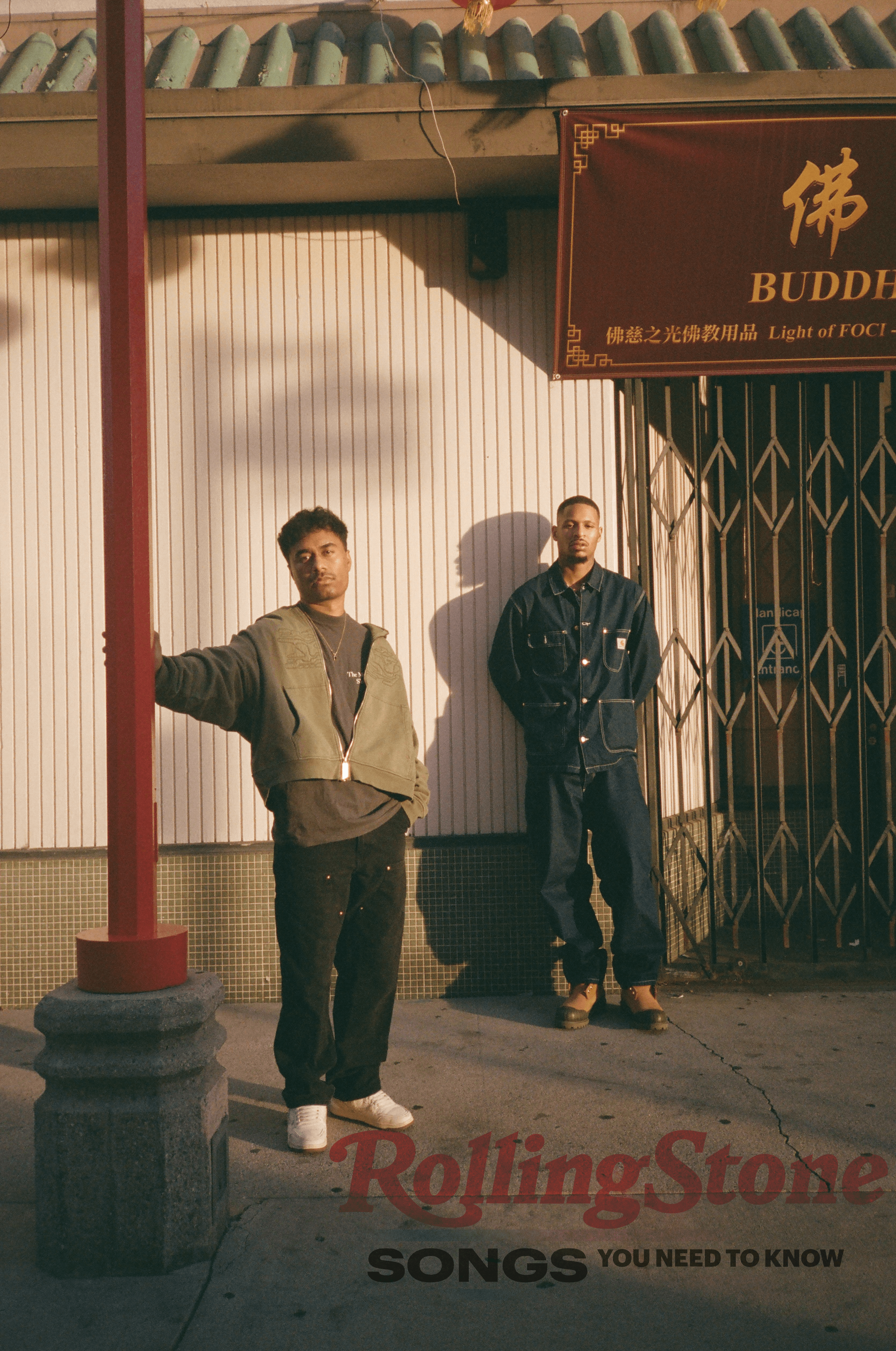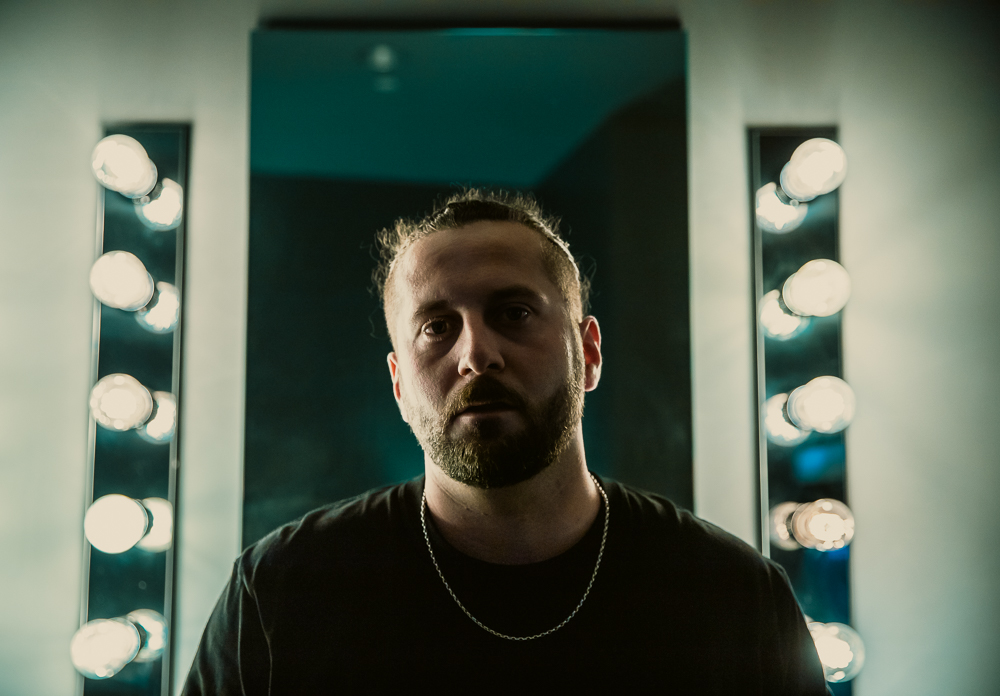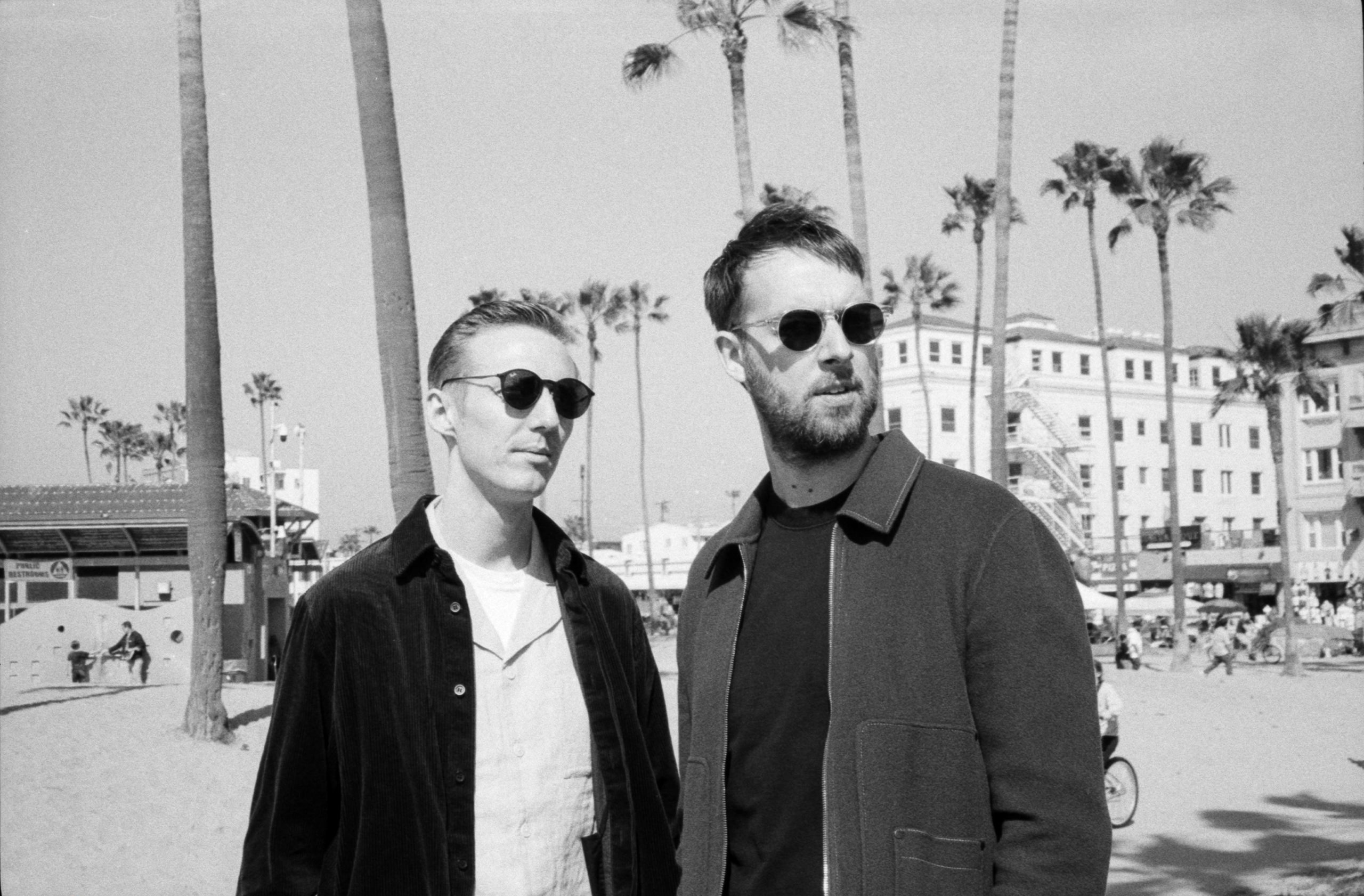Throughout time, humans have used dissent to bring ourselves closer despite our differences. By understanding and finding out we have more in common than we think, a beautiful thing called culture arises. Culture is the nexus of certain communities that are striving for something bigger than themselves. It isn't something that should be tainted by a selfish need for preservation, but something to be shared with the world. Because of that, for better or for worse, society has evolved thanks to culture.

AKTHESAVIOR and Sagun photographed by Rosie Matheson
Arts, fashion, and politics deviate from the classification of race and finances because there's an intrinsic yearning for unity. In that regard, it's quite superficial to use one's culture as a guideline for one's personality. That's how arguments about co-opting and a lack of respect for purity are in our day-to-day feeds. This observation becomes more accurate in modern times, where everyone wants to make a statement but isn't saying anything at all. Presently, we can communicate with whoever and whenever, however, we still feel alone.
Despite that, AK the Savior, a New York-born and now Los Angeles-based rapper and Nepal-based lo-fi producer Sagun, pulls you a seat at their table in their recent album titled "U R Not Alone." On this album, the duo navigates through musical genres while rapping about topics involving cultural politics and discovering where you belong, no matter where you're from. Comparable to the opposite ends they came from to create this album, the two also have a mutual understanding and respect for one another that is non-sequitur to music. They are building a model of self-confidence and staying true to what they believe in because culturally, that's what people want to be a part of.

AKTHESAVIOR and Sagun photographed by Jordan Smith
1. Do you think someone’s appearance is as important as their actual skill set when it comes to music?
Sagun: Personally, it does not matter, but like you said, it does play a big factor these days. But at the same time, if the music is good, no matter how good you look or dress, people will love you no matter what.
Ak: I agree with Sagun too. I think it's important, but not as important as it once was. It was way more important back in the day to look the part and to be a superstar. But nowadays some people are just super talented; uploading their videos or music where it speaks for itself in a sense.
2. One is from Nepal and one is from New York. How'd you guys meet and how'd this project come about?
AK: Sa, you want to tell him?
Sagun: Yeah, so I always wanted to make this kind of rap album, and I was talking to my manager about it to search for a rapper who could collaborate with me. My manager came up with the idea of having AK on this album and told me to send him beats and just see what happens. I just sent him beats one by one and it started from there through email.
AK: I just finished dropping an album called "Almost Home" and I was still in the zone creating music. I'm hands-on with my shit. After that, COVID hit and nothing was popping, but I love music, so I continued pursuing it through it. I dropped an album even though there weren't going to be any tours and I checked my email to see who's hitting me up. I kept networking, and Sagun's manager hit me up with this proposal about a lo-fi producer that would be a good match for me. He then sent me beat after beat and once I got the beats, I heard them and then instantly wrote the beats. It was an instant connection through Zoom calls and getting to know each other. Sagun then came to America for the first time; we met in person and that's when we started working on shit.
3. Do you think the most radical thing nowadays is just to be normal?
AK: Yeah. I agree with that. In today's world, music matters, but it's more about content. It's king right now. People are focused on ways to go viral. Within the fashion world, to go viral is to have shock value, so people might buy certain things that they may not necessarily like the Mario boots. They'll just wear that shit to go viral, but not like it.
Sagun: I agree. Some people just do anything and everything to go viral. I'm not mad at that though.
AK: Yeah, fuck it.
4. Talking about anime has been sort of taboo for minorities to talk about in recent years. Do you like that this conversation is more on the forefront or does it feel like just another opportunity to exploit another subculture?
AK: I think anime is for the world. Just because someone doesn't bring anime into the forefront of a conversation doesn't mean they're not about anime. I think what people are worried about now is that anime is getting super popular. It's becoming larger and larger and when things get big, more people just jump on the trend to be cool. Anime people are real gatekeepers and if someone's repping something that they know wasn't in it in the first place. Then it becomes "Nigga, you never liked that kind of shit before...". I think you just couldn't tell someone was into anime based on their music and image. You don't have to promote something to like it.
Sagun: Everyone around used to watch it, so I could never think or see people say they don't like anime.
AK: For instance, I always said I loved anime and made references in my music, but I feel like if those same people saw me out in New York with my homies looking like goons; they would think there's no way this guy watches anime. I got many anime tattoos and they're part of my life because they changed my life, so you can't judge someone based on how they look.
5. I know of the recent loss of the creator of Dragon Ball Z, Akira Toriyama. How did you feel about the sudden loss and how did his work influence you as an artist?
Ak: That shit fucked me up. Dragon Ball Z changed my entire life. As I grew up on it, I realized there were a lot of subliminal messages within the show. Some people may just see it as a cartoon, but Ki is a real thing. It's not just energy blasts and shit. Ki is the real energy we all have. Akira took that concept and made it playful, but we all have energy within us.
Sagun: I feel the same when I watch the Vineland Saga. It teaches you how to control yourself, your people, and the environment around you. You guys should check it out. I love that one.
AK: In the anime, there are so many gems that are dropping that apply to real-life men. People sleep on it! I encourage anyone reading this to watch anime because it'll change your life. And if you don't like fighting or energy balls and shit, watch Death Note (laughs). That's a great warm-up.

AKTHESAVIOR and Sagun photographed by Brayton Bowers

AKTHESAVIOR and Sagun photographed by Rosie Matheson
6. I know fashion and music go hand in hand, but it can sometimes be an obviously desperate opportunity for an artist to capitalize on it as a "business venture". What other ventures do you think we need more of from our current and future artists?
AK: For me, I'm one of those artists who are already venturing into different things. I'm into fashion, so that's not farfetched as something I could get into. I have friends in the fashion world too and I see how hard that shit is. It's some shit that's easy to tap into unless you're the type of artist who'll drop anything and people are going to follow it. I don't think I would get into it like that, but I don't want to cap myself either.
IR: You're also an actual artist.
AK: Yeah, so a couple of business ventures that I do include a jewelry company called "Florescent Treasures" and I even wrote my own manga called Nakaomiru, which means look inside. I also do paintings now and then because I'm the type of person who, whatever resonates with me at the moment; I'm going to tap into.
Sagun: I'm getting more into videography and photographing. I like how videos are done and if I'm not into that, I would get into coding. I love coding.
7. How much does your art correlate to your music, and vice versa?
AK: After I linked up with Sagun after recording "You Are Not Alone" almost 2 and a half years ago. I started painting a lot during our time recording it. I wanted to make new shit and thought, "How do I make this shit correlate to my music?" because niggas is not going to just accept a painting, so I had to make it make sense. All the cover art and single art was me painting. I had a project called "Tracing Patterns" where I wanted to connect my paintings with my music. I wanted to make something for what it is and I hope people don't get too judgmental about it.


8. Given your start in the rap group Underachievers and being part of this psychedelic rap that rappers such as the Flatbush Zombies, Asap Rocky, Danny Brown, and yourselves brought to the generation. Do you think drugs were the bigger inspiration or what role did psychedelic drugs play in this exploration for you?
AK: I think psychedelics played a huge role like you said, and people were connected to us through psychedelics. But I feel like I was speaking on more experiences I had when I was younger. The Underachievers were taking psychedelics when we were younger when we created "Indigoism" and things like that, but people got the misconception that we were tripping every single day. We weren't tripping every single day. Four times a year I would trip, but I can only speak for myself. Now I only take psychedelics once or twice a year when I need that spiritual push or boost of inspiration. Psychedelics is something you shouldn't abuse because if you do, that's how you lose yourself.
IR: I mean, that's how people become Deadheads into their 70's.
AK: Yeah(laughs). There's nothing wrong with being a fan and taking psychedelics. But if you let that shit just take over your life, you remove the balance and become lost. I love psychedelics because they changed my life, but you don't need them. I think I never needed it. It's here on earth for us to use and work together, but you don't need that for the spiritual growth that I've gotten. You just need to work to be the best version of yourself by reading books and enhancing your knowledge to bring enlightenment to your life. Drugs don't enlighten your life. That doesn't work and it doesn't fix your problems. It's just you and the journey you choose to go on.

AKTHESAVIOR and Sagun photographed by Brayten Bowers

AKTHESAVIOR and Sagun photographed by Rosie Matheson
9. You come from a multicultural background, which is one of the themes of your upcoming project. You are not alone. Growing up, did you feel out of place as someone who's multicultural and what helped you feel more included?
Sagun: I would never be who I am if I didn't grow up in my environment, so no. I never felt that I was in the wrong place or at the wrong time. That's totally who I am and I've always accepted it.
AK: I feel you 100 percent. I'm thankful to be from the Caribbean Islands and get the influences from the music to the food. It makes us who we are. When I was a kid, I went to school in Harlem from elementary to junior high school, bro. At that time, growing up, Spanish and black people were being. Oh, my god. As a kid, I was like, Why, and kids would try to fight me? It was just so weird because even other black people were fucking with me because they thought I was Spanish.
IR: Given how you look, I was going to say that! Was it a Dominican trying to fight you even though you guys are the same color? (laughs)
AK: BROOOOOO!!! I always questioned it. Why, why, why? Then I went to school from Manhattan to Brooklyn as I got older with more black people and Caribbean culture. In Harlem, niggas used to make fun of me and shit. Saying, "You got big ass lips, bro!". They said mad funny shit that made me feel like I'm not shit. But when I got to Brooklyn, I was the most popular dude in the school. I was just confused during that time, but all that shit happened for a reason and I'm grateful for it.

10. How do you think racial and cultural issues will change in the future as society continues to blend?
AK: I have high hopes for the future. The issue we have today is that the people who created these ways of thinking and ways of life through racism, etc. are still in power. If they're not directly connected to it, their sons and daughters are now in power. As we grow older and new generations come, there's going to be an understanding that we're all together as a human race. This skin color sh*t is stupid now.
Sagun: Totally.
AK: They've even shown now on certain websites what the future people are going to look like if we blend.
IR: Yeah, everyone's going to look like The Rock.
AK and Sagun: (laughs).
AK: I don't want everyone to look the same. That's boring, but if we all look the same, how are you going to judge me? Like on this album, "You Are Not Alone" ,we want you to feel like we're different from you. We are all humans with similar and different experiences, but the bottom line is that this is life. These are things that we go through and we're just sharing life as you are too.

AKTHESAVIOR and Sagun photographed by Rosie Matheson
11. What would you say to someone dealing with these types of issues when trying to find their voice?
AK: Follow your heart and whatever resonates with you. Do what matters and if you feel a certain way, express yourself. Don't bottle it up. When someone says no one understands me, it's like, of course, no one understands you because you didn't express yourself. If no one is truly listening; go out and find the person who's going to listen. You are not alone.
Sagun: If you think you're going to fail, keep trying.



















You must be logged in to post a comment.